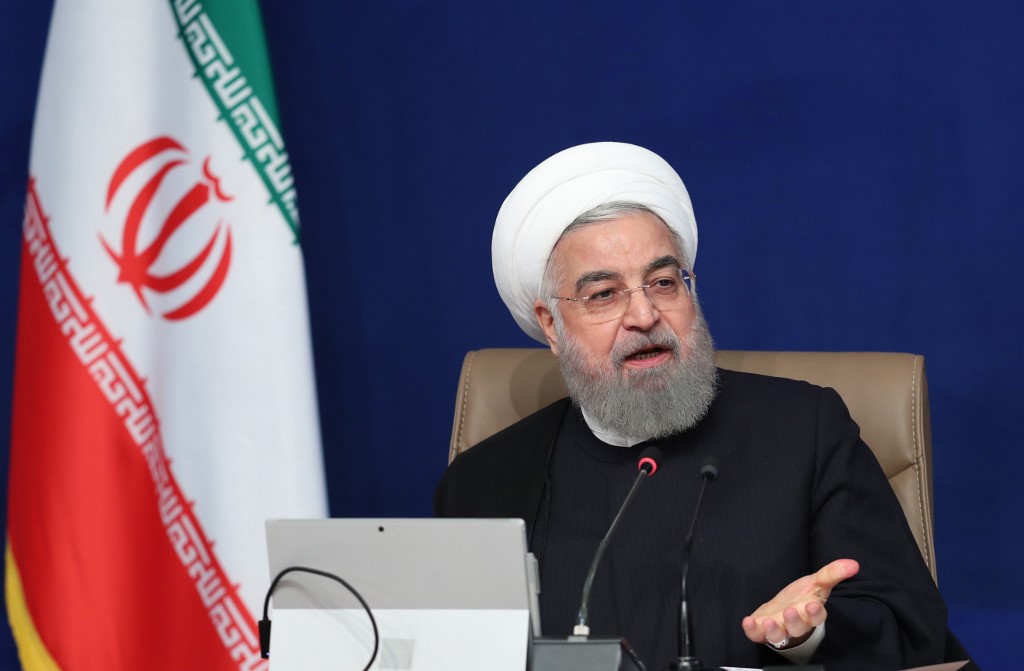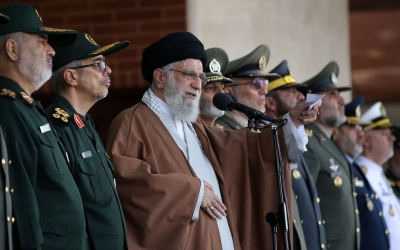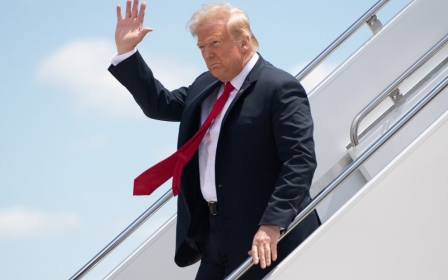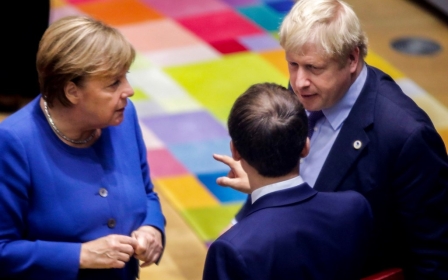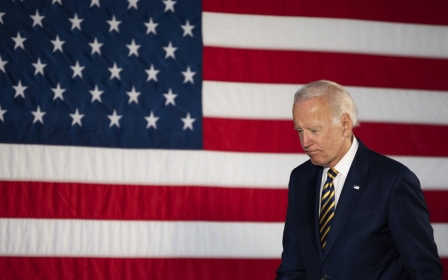Will the US trigger 'snapback' of UN sanctions on Iran?
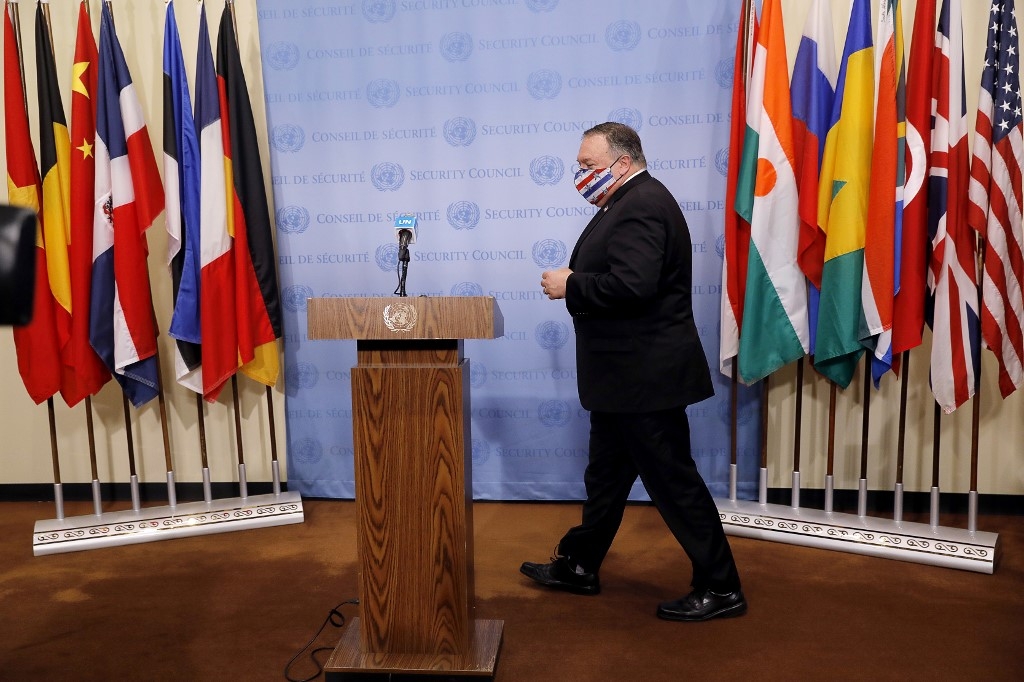
In May 2018, US Secretary of State Mike Pompeo issued an ultimatum to Iran, making 12 demands that it would have to satisfy before the US called off its “maximum pressure” campaign of economic sanctions. These included halting uranium enrichment, ending support to groups such as Hezbollah and Hamas, and withdrawing its forces from Syria, among other items.
More than two years later, despite US pressure and the human misery it has caused in Iran, no progress has been made towards Iran satisfying Pompeo’s demands. It would be difficult for President Donald Trump to claim that his Iran policy has been a success.
There is also the looming threat that on 18 October, two weeks before Trump seeks re-election, a UN arms embargo on Iran expires. Small wonder, then, that the US has been moving heaven and earth in an attempt to prevent this from happening.
Formal US notice
Last month, the UN Security Council rejected a US proposal to extend the arms embargo. A second effort is now in progress: using the “snapback” procedure in the 2015 nuclear agreement with Iran, known formally as the Joint Comprehensive Plan of Action (JCPOA), the US aims to reimpose sanctions, including arms-transfer restrictions. If the US succeeds, Iran would also be banned from enriching uranium.
New MEE newsletter: Jerusalem Dispatch
Sign up to get the latest insights and analysis on Israel-Palestine, alongside Turkey Unpacked and other MEE newsletters
We could arrive at a situation where the US insists sanctions have been reimposed through a valid process, while 13 other Security Council members regard the process as invalid
As matters stand, Iran will be free to import and export arms after 18 October - but invocation of the snapback procedure would allow sanctions to be reimposed at a stroke. To do so, a JCPOA participant state must start by notifying the Security Council of an issue that they believe “constitutes significant non-performance of commitments” under the nuclear deal.
Last month, Pompeo issued formal notice that the US believes Iran to be in non-compliance with its JCPOA commitments. At a news conference, he said the US was “initiating the restoration of virtually all UN sanctions on Iran lifted under UN Security Council Resolution 2231. This process will lead to those sanctions coming back into effect 30 days from today.”
Following this formal notification, if the Security Council fails to vote for a resolution backing the maintenance of the status quo, UN sanctions would be reimposed 30 days after the notice of non-compliance - on 20 September. In this instance, a resolution backing the status quo would not pass, because the US would veto it.
Yet, 13 members of the Security Council - all of them apart from the Dominican Republic and the US itself - have argued that the US cannot invoke the snapback procedure, as it is no longer a participant in the JCPOA, having unilaterally withdrawn from the deal in 2018.
Participants to the nuclear deal
It is difficult to argue against this proposition, as in May 2018, Trump ordered his secretary of state to “take all appropriate steps to cease the participation of the United States in the JCPOA”. When challenged about this at his news conference, Pompeo replied that “2231 gave every one of the participant states the right to execute snapback unconditionally”.
He has a point there, since Resolution 2231 defines the US, along with China, France, Germany, Russia, the UK, the EU and Iran as “JCPOA participants” - and it hasn’t been amended to reflect the fact that, on the orders of its president, the US ceased “participation” in the deal.
It’s not clear that the 13 objectors could prevent a Security Council resolution being proposed and voted on. If the US is ultimately able to ensure the snapback of UN sanctions by vetoing such a resolution, we could arrive at a situation where the US insists sanctions have been reimposed through a valid process, while 13 other Security Council members regard the process as invalid and consider sanctions to remain lifted. How such a situation could be resolved is unclear.
All reports by the International Atomic Energy Agency leading up to the US withdrawal confirmed Iran’s compliance with the nuclear deal, with the agency’s director-general stating in May 2018: “Iran is subject to the world’s most robust nuclear verification regime under the JCPOA … As of today, the IAEA can confirm that the nuclear-related commitments are being implemented by Iran.”
The US withdrawal from the deal and reimposition of sanctions on Iran clearly violated Resolution 2231, under which all UN member states are required to “take such actions as may be appropriate to support the implementation of the JCPOA”.
Meek European acceptance
Over the following year, as the US relentlessly increased economic pressure on Iran in violation of the agreement, Iran remained in full compliance. It looked to Germany, France and the UK for political support and help in countering US sanctions, but in vain.
Theoretically, France, Germany and the UK are in favour of maintaining the JCPOA, but they have provided the US with an excuse for violating it by echoing US complaints that it doesn’t cover the full range of Iran’s alleged sins and therefore needs to be modified. And they have done nothing to help Iran trade with the outside world, meekly accepting the damage to their own trade with Iran as a result of US sanctions.
After a year of renewed US sanctions, with the three European states proving to be of no help, the prospects for Iran looked bleak: US sanctions were hurting, and there was no obvious way out. Iran thus adopted a more aggressive stance.
In May 2019, it announced that it would no longer be bound by the JCPOA’s limits on heavy water and enriched uranium, while emphasising that the steps it proposed to take would be easily reversible if other parties to the deal came into compliance.
In the months that followed, Iran gradually extended its breaches of its JCPOA commitments. Pompeo has cited these breaches as evidence that Iran is in non-compliance with the deal - but had the US remained in full compliance, it’s certain that these breaches would never have occurred and that the JCPOA would today be functioning as intended.
Would Biden change course?
The unilateral US reimposition of sanctions undermined the bargain at the heart of the JCPOA - namely, that Iran accepted severe restrictions on its nuclear programme in exchange for the lifting of all nuclear-related sanctions. It was understandable that Iran has thus refused to be bound by those restrictions indefinitely.
If the US succeeds in reimposing UN sanctions as well, that would destroy the bargain altogether.
If Trump is replaced by Democrat Joe Biden as president in November, it is possible that the JCPOA could be restored. This would require the new administration to lift US sanctions and, if UN sanctions had been snapped back, to vote for a Security Council resolution lifting them again.
Multibillion-dollar compensation from the US for years of unjustified economic warfare against Iran would also be appropriate
The 2020 Democratic Party Platform vows that Democrats would “call off the Trump Administration’s race to war with Iran and prioritize nuclear diplomacy, de-escalation, and regional dialogue”, adding that the JCPOA “remains the best means to verifiably cut off all of Iran’s pathways to a nuclear bomb” and "that’s why returning to mutual compliance with the agreement is so urgent".
Biden’s foreign policy adviser, Antony Blinken, has also said that if Iran resumes compliance with the nuclear deal, “we would do the same thing, but we would use that as a platform to try to build a stronger and longer deal working with our partners”.
This seems to imply that a Biden administration would not demand that the JCPOA be amended to put further restrictions on Iran as a condition for returning to mutual compliance. In that case, Iran may respond positively and reverse its breaches. Multibillion-dollar compensation from the US for two and a half years of unjustified economic warfare against Iran would also be appropriate.
The views expressed in this article belong to the author and do not necessarily reflect the editorial policy of Middle East Eye.
Middle East Eye delivers independent and unrivalled coverage and analysis of the Middle East, North Africa and beyond. To learn more about republishing this content and the associated fees, please fill out this form. More about MEE can be found here.



